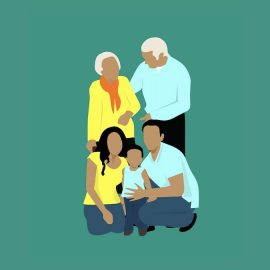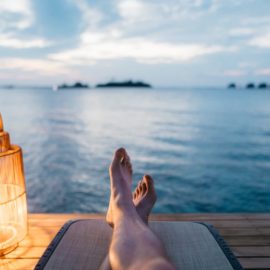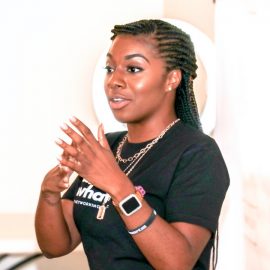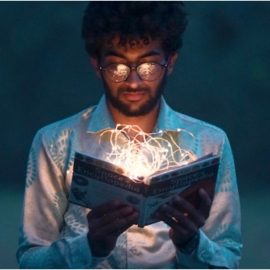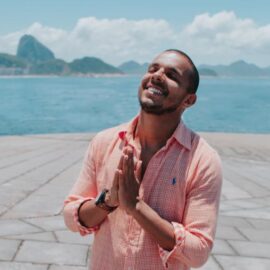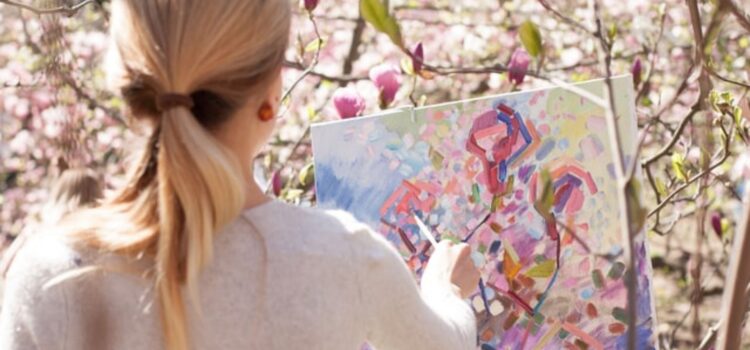
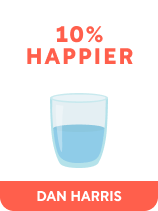
This article is an excerpt from the Shortform book guide to "10% Happier" by Dan Harris. Shortform has the world's best summaries and analyses of books you should be reading.
Like this article? Sign up for a free trial here .
Have you heard the myth that the best artists are the ones who suffer the most? Would you believe that you can combine mindfulness and creativity?
The starving artist is a famous trope. Many believe that the best art comes from those who are suffering—whether that be mentally, financially, or physically. However, in his book 10% Happier, Dan Harris asserts that you don’t need to suffer to be creative. In fact, he says that mindfulness can actually boost creativity.
Let’s debunk the starving artist myth.
Mindfulness Won’t Make You Less Creative
When Harris suggested to his artistic friends to try meditation, they expressed concerns that it would make them less creative. This is a common misconception among artists—that suffering, judging others, or dwelling on negative emotions will cause them to create better art, and that if they come to peace with their suffering through mindfulness, their creativity will decrease.
However, Harris argues that you can practice mindfulness and creativity. Mindfulness helps you examine your insecurities, negative feelings, and self-disgust. By realizing what you’re feeling, you’ll become more insightful, not less.
For example, Martin is a painter, and his father recently passed away. Martin uses mindfulness to identify his sadness and explore how it affects him. Does it make him more tired? Does it make his face tense? Does he find himself wanting to be alone more? Martin is able to use mindfulness to understand the feeling, and he’s able to translate it into his next painting.
| Suffering, Creativity, and Mindfulness The idea that artists must suffer in order to create good art is a common misconception, spurred on by the famously tortured mental states of many artists like Sylvia Plath, Vincent Van Gogh, Virginia Woolf, and Kurt Cobain. Some studies have found correlations between mental illness and creativity. A Swedish study found higher percentages of mood disorders like anxiety and bipolar disorder in artists. Another study showed links between schizophrenia and creativity, and yet another found a correlation between psychosis and creativity. With so much research pointing to a relationship between suffering and the artistic process, does this mean pain is necessary for art? One theory proposes that mental illnesses like schizophrenia make artists more creative because of a process called “cognitive disinhibition.” This occurs when we fail to ignore all of the irrelevant information we encounter in the world. Researchers believe this overwhelming amount of information can cause artists to turn their attention inward, reflecting on their inner world instead of dealing with the outside world. However, if being more aware of external stimuli and reflecting on your inner world are beneficial to the creative process, mindfulness could actually help artists. In Mindfulness for a More Creative Life, Dr. Danny Penman argues that mindfulness boosts creativity due to three essential elements: receptivity to new ideas, better attention and understanding of useful ideas, and resilience in the face of setbacks. By being mindful and present, our ability to notice and take in new ideas improves, which seems to be beneficial to the creative process, as illustrated by cognitive disinhibition. Mindfulness can also make us more resilient after failure, which is inevitable in the creative process. |

———End of Preview———
Like what you just read? Read the rest of the world's best book summary and analysis of Dan Harris's "10% Happier" at Shortform .
Here's what you'll find in our full 10% Happier summary :
- A skeptic’s journey through the world of self-help
- How to control your anxiety, manage your ego, and become more compassionate
- How you can improve your life and career—even by just 10%

